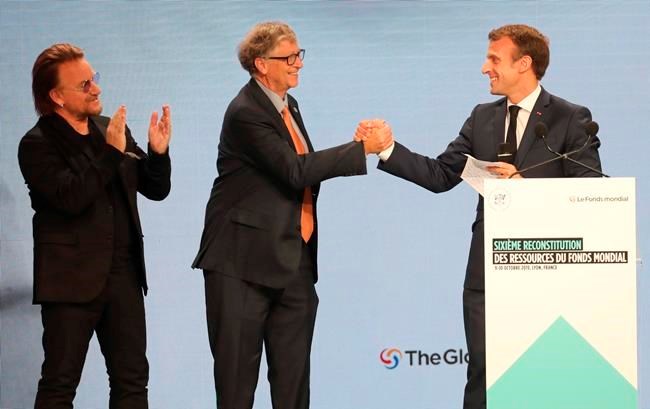MONTREAL ŌĆö Advocacy groups working to end extreme poverty say they hope sa╣·╝╩┤½├Į will use an upcoming international AIDS conference in Montreal to commit new funding for a global organization that fights AIDS, tuberculosis and malaria.┬Ā
But the groups say they're worried Prime Minister Justin Trudeau's commitment to the Global Fund to Fight AIDS, Tuberculosis and Malaria will fall short.
Elise Legault, sa╣·╝╩┤½├Į director at the ONE Campaign, an international non-governmental organization that fights extreme poverty and preventable disease, said her group is calling for Trudeau to commit $1.2 billion to the fund during the AIDS 2022 conference, which begins July 29.
"With this investment, sa╣·╝╩┤½├Į would, alongside lots of other countries, help save another 20 million lives over the next few years, but we're concerned that the prime minister might not be taking this opportunity," she said in a recent interview.
Legault said the Global Fund, which provides financing to health departments and NGOs fighting the three diseases, has helped save an estimated 44 million lives over the past 20 years.
sa╣·╝╩┤½├Į is one of the fund's largest supporters and has pledged more than $4 billion since 2002.┬Ā
Chris Dendys, executive director of Results sa╣·╝╩┤½├Į, an Ottawa-based advocacy organization that works to end extreme poverty, said her group is also "pushing for this $1.2-billion contribution, which is what the Global Fund says is needed ŌĆö the bare minimum needed."
"What we're hearing is that there's been some sticker shock associated with that ask, which is unfortunate, given the opportunity for impact and the opportunity for sa╣·╝╩┤½├Į to really step up on a global stage where the world will be watching," she said in an interview Thursday.
The Global Fund has asked donor nations for US$18 billion in funding over the next three years ŌĆö a nearly 30 per cent increase from the US$14 billion it asked for three years ago. The organization said it needs more money to make up ground lost during the COVID-19 pandemic.
The pandemic, Legault said, disrupted health-care services, including those aimed at fighting AIDS, TB and malaria.
"When the COVID pandemic struck, we let these killers regain the initiative, we saw deaths from TB and malaria rise for the first time in many years, and if we don't stem that tide, it would be the worst possible legacy of the pandemic," she said. "We're really concerned about losing progress."
The $1.2-billion contribution to the Global Fund is sa╣·╝╩┤½├Į's "fair share" of the US$18 billion the organization needs, Legault said. It would be a 30 per cent increase over the $930.4 million sa╣·╝╩┤½├Į pledged to the fund during the last replenishment in 2019.
In the past, Trudeau has played a leadership role in encouraging other nations to contribute to the Global Fund, Dendys said, adding that other countries will be watching what sa╣·╝╩┤½├Į does.┬Ā
"It's not just about sa╣·╝╩┤½├Į's pledge, it's really that the stakes are high globally for other donors to come in and to come in at the level that's needed to make a difference," she said. "If we do come in too low, we're not raising the bar, we're digging a trough that other donors will fall into."
A spokeswoman for the prime minister directed questions to the office of International Development Minister Harjit Sajjan, which said Thursday it would not be able to respond to questions about commitments to the Global Fund until the following week. ┬Ā
This report by The Canadian Press was first published July 24, 2022.
Jacob Serebrin, The Canadian Press



